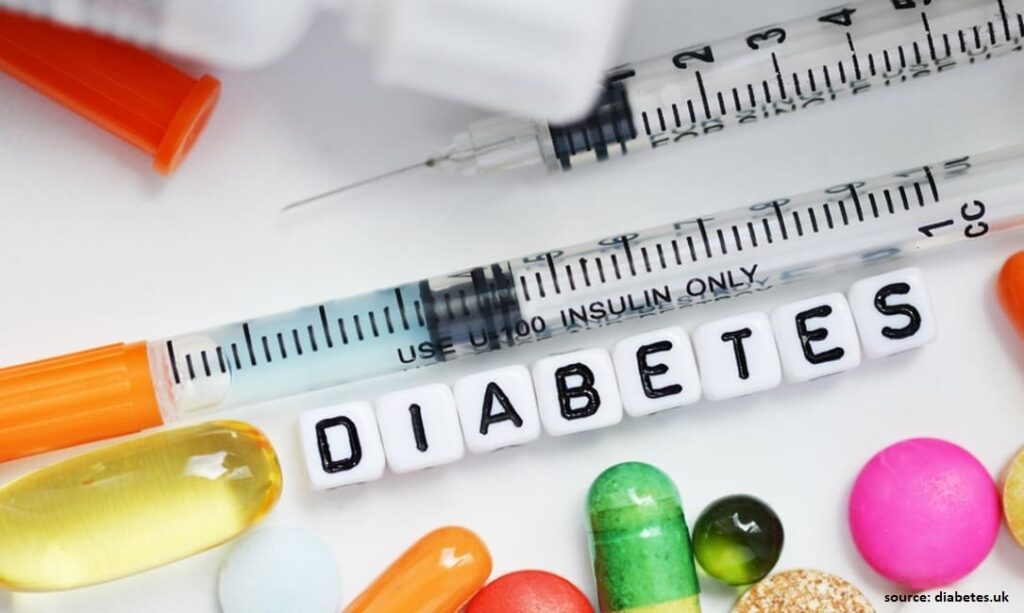Type 2 diabetes is a chronic illness that affects many people in Middletown. Untreated cases can lead to blindness, kidney failure, heart disease, and other severe conditions. If you suffer from any such conditions due to your diabetes, visit your diabetologist in Model Town, Gaziabad immediately.
Before you are diagnosed with diabetes, there is a phase when you have prediabetes. About 70% of individuals with prediabetes develop type 2 diabetes. Fortunately, you can stop prediabetes from developing into type 2 diabetes.
Even though there are some factors you cannot change — such as your genes, age, or past behaviours; there are many steps you can take to minimize the risk of type 2 diabetes.
So, we have mentioned six ways you can use to prevent type 2 diabetes.
Cut refined carbs and sugar from diet
Refined carbs and sugary foods can put people at risk of developing diabetes on a fast track.
Your body quickly breaks refined carbs and sugary foods down into tiny sugar molecules, which are absorbed in your bloodstream.
This causes an increase in your blood sugar levels, which stimulates your pancreas to produce insulin. Insulin is a hormone that assists in getting out sugar from your bloodstream and into the body’s cells.
If you have prediabetes, the body’s cells become resistant to insulin’s functions, so sugar rises in the blood. To counter this, the pancreas produces more insulin to bring your blood sugar down to a healthy level.
After some time, this progresses to high blood sugar and insulin levels till it becomes type 2 diabetes.
Work out regularly
Regularly doing physical activity assists in preventing diabetes.
Exercise enhances the insulin sensitivity of your body cells. So, less insulin is needed to keep your blood sugar levels in control.
Many physical activities are known to reduce blood sugar and insulin resistance in overweight, obese, and prediabetic adults. These include strength training, aerobic exercise, yoga, and high-intensity interval training.
Frequently working out can enhance your insulin function and response.
It is best to choose a physical activity that you love, engage with, and feel you can continue for a long time.
Lose weight if you are overweight or obese
Although not everyone who has type 2 diabetes is overweight or obese, many people are.
Furthermore, prediabetes people usually have extra weight in the midsection and close to abdominal organs, including the liver. It is called visceral fat.
Extra visceral fat leads to insulin and inflammation resistance, which increases the diabetes’s risk.
Even though losing even a small amount of weight decrease this risk, research suggests that the more weight you lose, the greater benefits you have.
There are many healthy choices for reducing weight, including low-carb, vegetarian, Mediterranean, and paleo diets. Choosing a diet you can keep up with for a long time is vital for weight loss.
Quit smoking
Smoking is known to contribute to or cause many severe health conditions.
There are also studies linking smoking and second-hand smoke exposure to type 2 diabetes.
Smoking is strongly linked with diabetes risk, particularly in heavy smokers. Quitting has been shown to minimize this risk as time passes.
Follow a very-low-carb diet
Following a low-carb or ketogenic diet assists in preventing diabetes.
Even though many ways of eating encourage weight loss, very-low-carb diets have proof supporting them.
They are shown to consistently:
- Reduce blood sugar and insulin levels
- Increase insulin sensitivity
- Minimize other diabetes risk factors
Watch portion sizes
Whether or not you opt for a low-carb diet, it is crucial to avoid large portions of food, particularly if you are overweight.
Eating a large amount of food at once is shown to cause a spike in blood sugar and insulin levels in people at risk of diabetes.
On the other hand, reducing portion sizes might prevent this type of response.
Takeaway
You can have control over several factors that increase diabetes risk.
Instead of seeing prediabetes as a steppingstone to diabetes, you should take it as encouragement. It will help you make changes that can decrease your diabetes risk.
Consuming proper foods and changing lifestyles that promote insulin levels and healthy blood sugar can give you the best chance to prevent diabetes.


